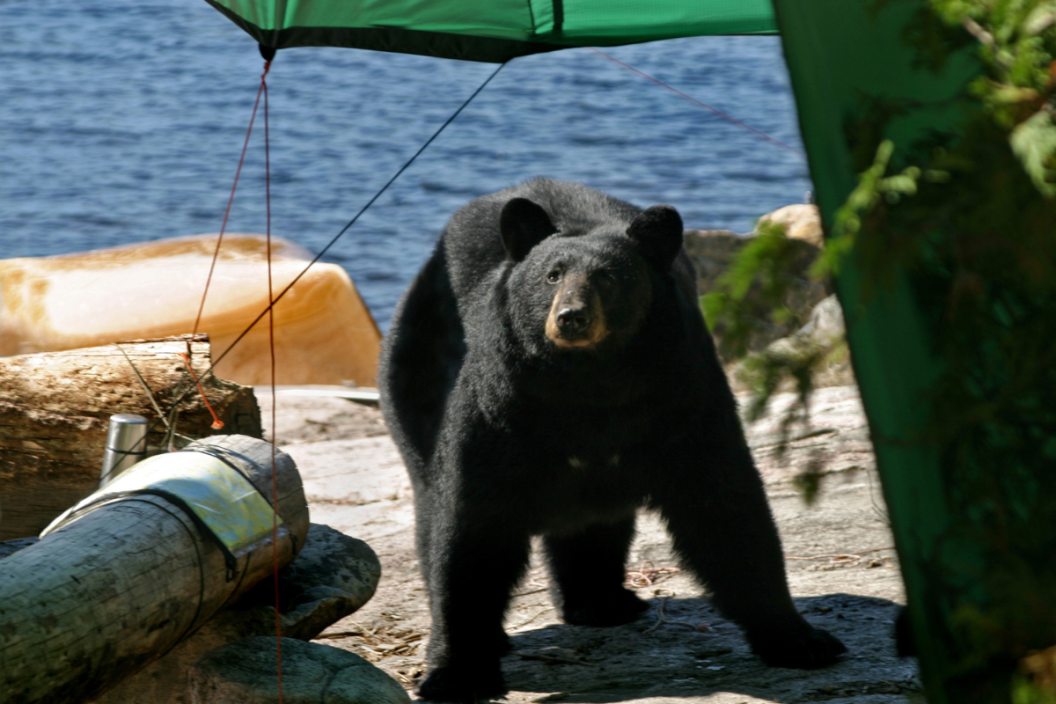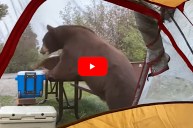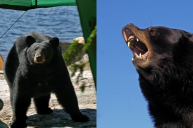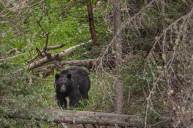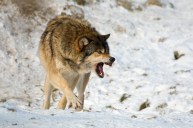Last summer, a grizzly bear walked into the rural town of Ovando, Montana, in the early morning dark and pulled a woman out of her tent, fatally mauling her.
The attack victim, a 64-year-old California woman on a bike packing trip, had pitched her tent near the town's museum. Ovando is a popular stop on the Great Divide bicycle route, with welcoming locals and homey cafes. A month later, a black bear destroyed a tent full of sleeping campers in the popular Avalanche Campground in Colorado's Apache National Forest. Thankfully they were uninjured, but the attack forced the campground to close for a month.
This incident and the tragic death in Montana were sobering reminders that you don't have to be in the backcountry for a bear to take an interest in your camp. Attacks like these are rare, of course, and there is no reason for anyone to let a fear of bears keep them from camping. For the most part, bears prefer to avoid humans and usually vanish at the first sign of people. But bears are also intelligent and curious, have an unfathomably powerful sense of smell, and are voracious omnivores whose survival depends on packing on pounds before a long winter's sleep. In other words, they're always looking for a free meal, and when we campers tempt them with one, sometimes they get themselves in trouble. But with a bit of understanding of bear behavior and a rigorous commitment to camp cleanliness, anyone can significantly reduce the chance of a negative bear encounter in camp.
I've been camping, hiking, and hunting in bear country for years and encountered dozens of black bears and a few grizzlies. I get a thrill from seeing bears—but at a respectable distance and never in camp. Simply put, a bear that comes into camp smells food or has learned to associate campers with food, which makes it a dangerous bear. The fundamental principle for bear safety when camping is not to give bears any reason to overcome their natural aversion to humans because they think you're the source of a free lunch. But it also helps to know a little about these amazing animals, their range, behavior, and what to do if one shows up.
Bear Safety When Camping - Bears 101
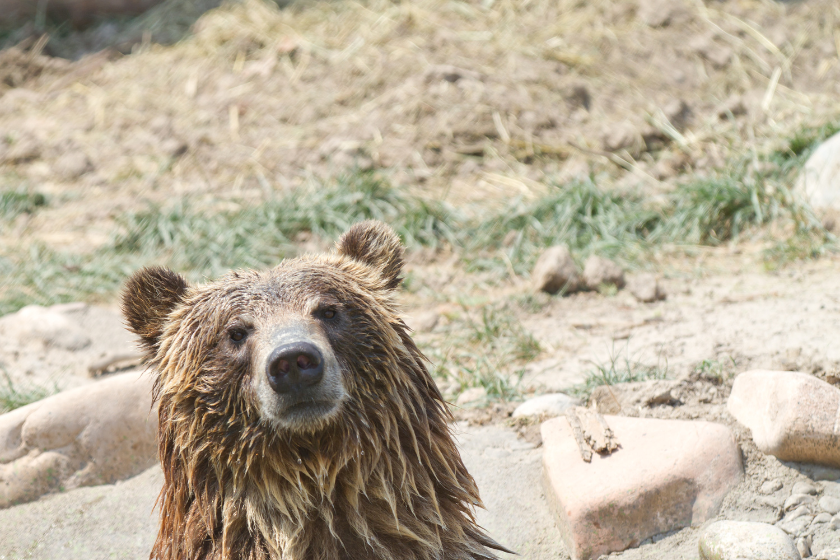
ncognet0 via Getty Images
Black bears are our most widespread bear and the ones you're most likely to encounter. They're found in at least 40 states, from North Carolina to Maine, in spots like Florida and the Ozarks, and widely dispersed throughout the Mountain West. Their mostly healthy populations and wide distribution make them one of the wilder species we outdoors-lovers get a thrill from seeing.
The good news is that black bears are timid by nature and, in most cases, fear people. Of course, any bear with cubs is always dangerous, and black bears occasionally act predatorily towards people. There have been a handful of deaths over the last 20 years, but your chance of being attacked or injured by a black bear is meager. It's also not hard to chase them away.
Grizzlies are very different. Grizzly bears are apex predators who fear nothing in the wild places they still roam, including humans. They are naturally aggressive and quick to defend themselves, their territory, and their food. Sometimes they are not afraid to go and take something that they want. Stories of their violent nature go back to the indigenous tribes who lived with them for generations through Lewis and Clark and the trappers and pioneers who followed. Grizzlies once roamed our great plains. Their range spread over the entire west. Sadly the only areas in the lower 48 with healthy grizzly populations are Washington's North Cascades, Western Montana, Idaho, and Wyoming. In the Greater Yellowstone Ecosystem (GYE), where I live, grizzlies are never far from your mind on any camping and hiking trip.
Keeping Bears Out of Camp
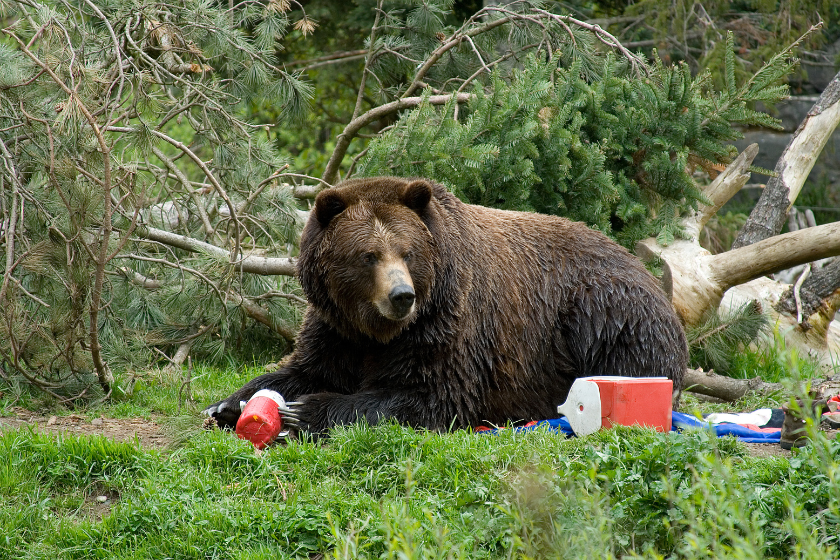
roundhill via Getty Images
To help me better understand camping in bear country, I sat down with Danielle Olyer, Wildlife Stewardship Outreach Specials for Montana, Fish, Wildlife, and Parks. Her job is to educate the public about how to avoid trouble and confrontation with and for all kinds of wildlife, but bears are the focus. She grew up and still lives in the GYE and worked in Yellowstone for many years as a park ranger and naturalist guide.
"I bet I've spent over 150 nights on the ground in grizzly country in a tent," she says, "and I've spent many more days just hiking and working on trails in the backcountry of Yellowstone."
According to Oyler, sticking to a well-known set of best practices around camp cooking, food, and cleanliness is the best way to avoid bears in camp.
First, when camping in bear country, all food, trash, and substances with a smell that might attract bears (think toiletries, drinks, sunscreen, gum, etc.) must be stored in a bear-proof container. The Forest or Park service makes this easy in many places with metal "bear boxes" for food storage at each campsite. If there is no bear box where you camp, you should consider buying (or renting) a "bear canister," a portable, hard-sided food locker. A vehicle is also an option but must be a "hard-sided" vehicle. Pop-up campers with soft sides or a truck bed with a canvas top won't cut it. In fact, in some Yellowstone campgrounds, soft-sided trailers are prohibited for this reason. Your cooler won't work either.

tupungato via Getty Images
If you don't have a bear-proof container or vehicle, you must hang your food, trash, and attractants in a "bear bag" for bear safety when camping. It works like this. Put your food in a few layers of sealed plastic bags inside a dry bag or stuff sack. Remember, this includes pots, utensils, toiletries, etc. Now you must hang the bag at least 12 feet off the ground. It's best if you can hang it from a rope stretched between two trees about 20-feet apart (some campgrounds have a cable already strung for this). If only one tree is available, the bag should hang at least 5 feet away from the trunk, 5 feet below the branch it's hanging from, and 12 feet off the ground. You'll need about 100 feet of cord. Throw one end over the branch, tie the other to the bag, and hoist it up. Ideally, and especially in grizzly country, you should hang the food at least 100 yards from your campsite, preferably upwind.
"A mistake people make is that they go through all the trouble of storing their food properly but then blow it by leaving a snack in their pack in the tent or forgetting about a pot," says Oyler. "You need to be absolute about this-no food in the tent ever, no cooking in the tent ever."
When to Scare a Bear
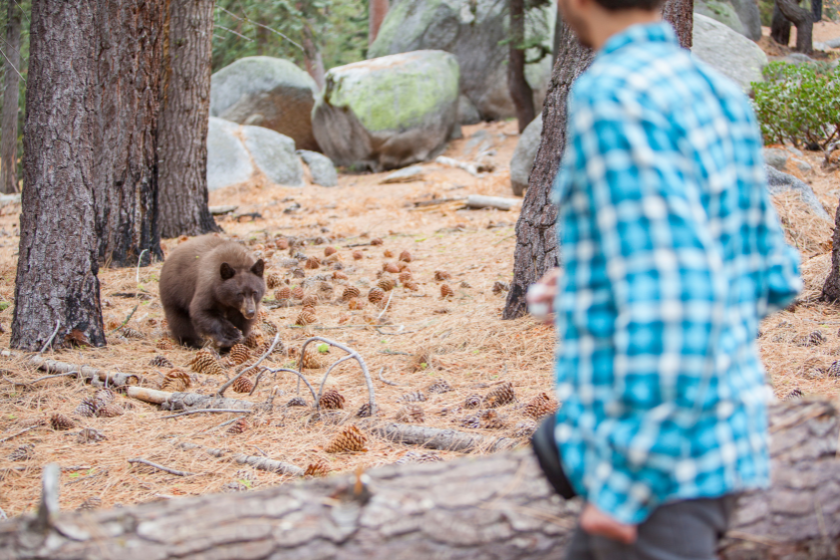
Alex Potemkin via Getty Images
That's the best way to prevent a bear from coming into camp, but what do you do if one shows up anyway?
"I've had at least three situations when I was sleeping on the ground in bear country, and a grizzly walked through my site, sniffing at the tent or whatever," says Oyler. "Even if you did everything right, humans have a smell, and sometimes a curious bear will come by to check it out."
If you are outside your tent and see a bear near your camp, you should scare it away. Make sure the bear has a clear avenue of escape and talk in a loud voice. Wave your arms. With black bears, you can get aggressive if necessary. Bang pots, throw rocks near it, yell. You want that bear to think you're trouble, not a source of food.
A grizzly bear near camp is a serious situation. You should first grab your bear spray, a must-have when camping and hiking in grizzly country. This is a super-sized can of mace, powerful enough to give any grizzly a terrible day if it gets a faceful. Always carry it, and make sure you know how to use it.
"If you can see the grizzly near the camp," says Olyer, "I would be making noise, talking, and trying to deter him but not shouting loudly or otherwise making the bear feel defensive. Use your bear spray if necessary to try to deter it from coming any closer to you."
If you're in your tent at night and hear the heavy footfalls of a bear outside, you don't just want to stay quiet in your tent and hope it goes away.
"Start talking in a calm manner," says Oyler, "and then gradually increase the volume so that the bear knows you're aware that they're there. I wouldn't just let them walk through the campsite. You want them to know that they're not welcome."
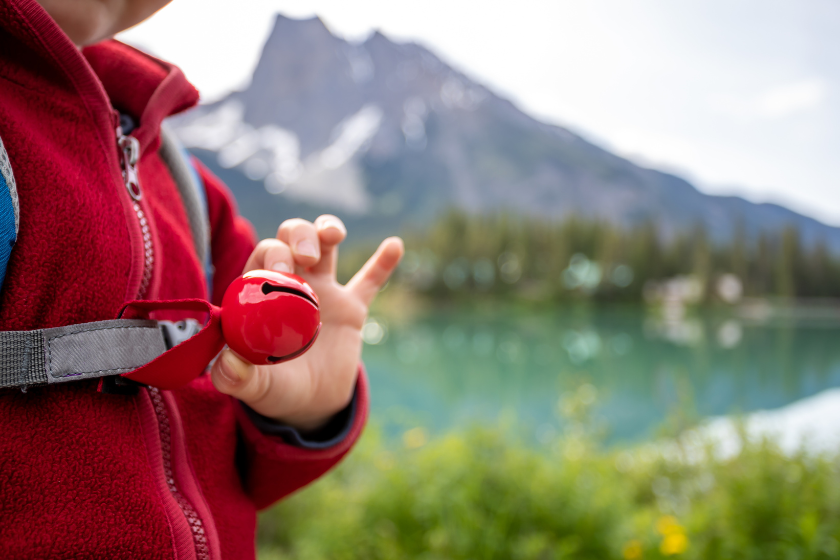
Onfokus via Getty Images
In grizzly country, you should always keep your bear spray in your tent next to you.
"Yes, it would suck to spray your bear spray in your tent," says Oyler, "but it's not as bad as a bear attack. It's super rare, but you always wanna be ready."
Oyler also strongly recommends that if a grizzly comes by camp at night, if you can't safely leave or get to your vehicle, someone should stay up until daylight to ensure the bear doesn't come back.
Finally, any time you see any bear near the camp, notify the rangers, park service, or campground attendant as soon as possible. Camp managers can then take the appropriate steps, whether closing campgrounds or trails or getting wildlife managers to chase away or trap and relocate the problem bear. Honestly, the chances are that you'll never see a bear in your camp, but a good camper, like a Scout, is always prepared.
Anthony Licata is the editor-in-chief of Wide Open Roads. He's been traveling and writing through the U.S. for many years. He lives with his wife and two children in Bozeman, Montana.
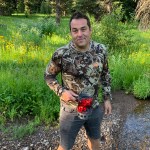
Share your wildlife encounters with us on our Wide Open Road Facebook!
READ MORE: Yurt Camping in Oregon: State Park Campgrounds vs. Airbnb Rentals
